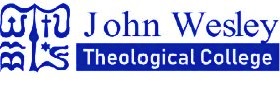Mission Statement
The Senate of the John Wesley Theological College has decided to launch an international scientific journal in English-Hungarian entitled "Opuscula Theologica et Scientifica - the scientific publications of the WJLF", which will be made available on its website free of charge to the interested public, including all its appendices. We believe that open access and value-added (enhanced) publications are an effective service to transparent science, to the future and to society.
In the past, we have also taken initiatives to create journals or yearbooks linked to specific disciplines, and more recently to create a non-disciplinary yearbook. We have had, and still have, other scientific publication series. In order to strengthen the unity of our institution, we have now decided that it would be better if the scientific collection of the journal were to be in line with the professional profile of the institution, i.e. all our profiles are represented, as marked by our doctoral school, our disciplines, our departments and our research institutes.
The authorised editors of the journal are current members of the College's Academic Council, in recognition of the work of our colleagues and in support of professional democracy in the community.
The mission of the journal is defined by two pillars: freedom of scientific thought and social responsibility. The WJLF is dedicated exclusively to disciplines and departments that promote social responsibility, solidarity, common futures and service to the common good in their respective fields, not within the normative constraints, well-trodden paths and established practices of mainstream scholarship, but in a distinctly "Wesleyan style": embracing every new attempt, unusual solution or approach, in a spirit of free debate. Our journal does not discriminate on the basis of authors' religious or denominational affiliation, worldview, political, ethnic or geographical affiliation, and submitted manuscripts are proofread anonymously.
The aim of the journal's editorial work is not to serve some kind of scientific public taste, to uphold traditions or to filter professional opinions, but solely to improve the quality of the texts while protecting the author's original ideas. By freedom, we mean the free expression of opinions on the interpretation of new scientific findings, but we are committed to the quality of the content of works, if necessary at the expense of formal uniformity or disciplinary boundaries.
Our journal publishes only original scientific publications, which may include data releases, source communications, methodological studies, research reviews, professional or policy studies, and literature review syntheses. Scientific papers may be accompanied by any supporting annexes (electronic appendices). We strive to ensure that our journal is included in as many peer-review databases, repositories, scientometric rating systems and recommended journal lists as possible, so we impose certain formal rules, but these should not affect the limitation of content.
Our aim is to help bring studies that violate norms in the Kuhnian sense and thus are oriented towards future science into the national and international scientific community, but we are also open to any work that fits the professional profile of our institution, whether traditional or in line with current paradigms.
Our journal contains five main dossiers, the first four of which are entitled Religion and Research, Society and Research, Education and Research and Nature and Research, and the fifth is open to other approaches (e.g. methodological, ancillary or multidisciplinary) that cannot be classified under these headings. It is no coincidence that the names of the dossiers are not given by discipline, but by the area of the world to be explored: freedom from disciplinary boundaries is also an objective. The five areas are equally important, and their order is simply an expression of the order in which our departments and specialisations have been set up.
We believe that our journal, with its modest means, will contribute to the intellectual maturation of a new sustainable, inclusive, free and democratic society for humanity, based on equal opportunities, tolerance and respect for diversity.
Gábor Iványi





